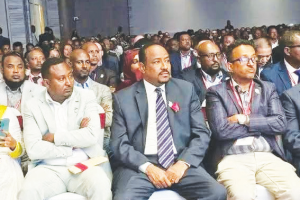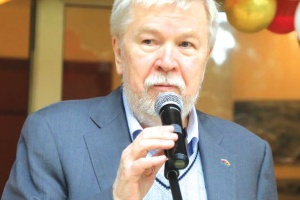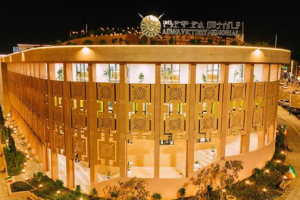BY MULUGETA GUDETA
Amare Mamo who recently passed away was, in my view, a true lover of literature and a professional editor and publisher who studied literature in Norway, took a short course on writing in Zambia and worked at the long-defunct Bisrate Wongel radio station literature department, produced many works of translation, including the one page Desiderata or a collection of moral teachings and ethical statements. He started his professional editing career at The Ethiopian Book Centre and ended it at Shama Books.
Upon joining the publishing world back in the 1970s and 1980s, he produced two “how to” translation works on writing fiction as well as another work on tips to write non-fiction. These books encouraged and inspired novice writers to launch their writing careers.
My encounter with Amare Mamo was back in the 1980s when I brought my first manuscript of Yarada Lijoch (Boys of Arada), a collection of nine Amharic short stories to the now-defunct Ethiopian Book Centre for publication. Amare Mamo was the only editor at the only truly publishing house. His office was on the last floor of the building that also housed The British Council for many decades. So one day I decided to go to the said publisher to show him my work and with some luck get it published there.
I was out of breath when I reached the main door of the publishing house and knocked on the door rather timidly. You probably know how it feels to meet a prospective publisher with your maiden manuscript. A feminine voice could be heard from inside. When I opened the door, a young woman with a beaming smile on her face politely invited me to come in. “ Follow me please!” she said and I followed her into the next room where she sat at the big table on which I could see an old typewriter and many papers dispersed on the table.
The young woman told me that she was the editor’s secretary, asking me why I had come that day. When I told her that I came with a new manuscript to submit for publication, she instantly rose from her chair and walked to the room in front of her, opened it and talked to a man whom I could not see at the moment. “Let him come in!” I could barely hear him saying while the young and pleasant looking woman with a fair complexion conveyed the message to me. I quickly went to the editor’s office whose door was left ajar by the secretary.
As soon as he saw me, the man who could probably be in his late early fifties smiled and stretched his hand to greet me. He shook my hand and introduced himself as Amare Mamo, the only editor of the publishing house. The room was cold and a big glass window was opening on the last floor of the building. I could see the shanty town below the building and in the distance, the dry big river that crosses the town. It was the dry season and the wind was blowing through the window.
Amare asked me about the purpose of my unexpected visit. I told him that I came with a manuscript with the hope that it could be published. I handed him the small manuscript that I was holding on my laps. Amare adjusted his reading glasses on his nose and started to examine the first page of the manuscript that bore the title of the book of short stories. Then he turned the first few pages and looked up at me and said, “We shall see if it is worth publishing!” His characteristic smile was playing on his thin lips. My first impression of Amare Mammo was that of a humorous man ready to burst into loud laughter at any moment. His small eyes were sharp while his grayling hair was short-cropped.
I thanked the editor and asked him when to return to know the fate of my book. He asked me where I was working and when I told him that I was a journalist working at the Ethiopian Herald newspaper, he smiled for a reason I could not fathom and jotted my phone number on his aid memoir, saying, “We’ll call you soon!”. I shut the door of the office behind me quite cautiously, afraid to make a loud noise and said goodbye to the secretary who was still smiling and left the building, my heart thumping in my chest.
I had never dreamt of getting a book published with my name on it and the possibility of becoming a writer created a great deal of emotion in me. I had doubts about my manuscript being accepted by the publishing house since that was my first attempt at literature. I wrote nine short stories in a space of nine or ten days. My inspiration came from a very young boy calling passengers on a wuyiyit taxi. His young age as well as the manner with which he was doing his job was quite interesting to me and I told myself to write a story, not in the usual journalistic mode, about him in a literary fashion.
I was reading at that time a collection of Maxim Gorki’s short stories that were mostly about young boys who suffered and fought against life during the time of Tsarist Russia. Most of the stories were about poor boys and girls and workers who led difficult lives. The characters were mostly similar to people in our own society and that was the reason I decided to write my first short stories with the first fictional character I named Belihu who is a caller on a taxi. I imagined how his life might be difficult and asked myself whether he was an orphan who had lost his mother and lived with his harsh stepmother who sent him out telling him to earn his living by any means.
When I returned a week after submitting my manuscript, Amare invited me to sit down closer to his table and brought out my manuscript from his drawer, looked at me and said, “We have accepted your book for publication!” with a smile that betrayed his pleasure. He told me that of the nine short stories I submitted, with were accepted for publication after they were read by someone at the Addis Ababa university who said they were timely and well-written stories. It was the time of the great Revolution that I included in the collection tales about peasants, workers and poor people in general o whose lives I was always attracted and often asked myself why they were poor while others were better off.
I feeling of excitement akin to a high voltage electric current crossed my entire body and I was aghast with excitement but tried to disguise it so that Amare would not know about it. The editor patiently explained to me the corrections I should make on the manuscript and handed me the opinions of the critic at the university who went through each story and wrote down his likes and dislikes. Soon I left the office after asking Amare when I should return. “We’ll call you!” he said and gave me back the manuscript together with the two-page critical opinion by the reader.
Then Amare called his secretary and told her to prepare the agreement for publication. She brought a three page agreement paper and told me to sign at the end of it after reading carefully the terms of the agreement. I did as she told me. Then Amare told her to prepare a check for advance payment of 500 birr and my hands was shaking when I collected the cheque. It was the first time that someone wrote a cheque to me and told me to go to the bank to collect money. This was to me as exciting as the acceptance of my manuscript for publication.
My hands were shaking in my pocket and my mouth was dry with emotion. I collected the cheque, put it in my pocket and left the place. I could not believe what had happened to me. My monthly salary at that time was 600 birr and getting 500 birr at one go, after writing stories that gave me great pleasure and enjoyment was something extraordinary to me. I felt as if I hit the jackpot.
As soon as I left the bank, I rushed to my office at Arat Kilo and walked up the stairs to the seventh floor of the Berhanena Selam printing press and reached my office in no time. I sat down to go through the reader’s assessment of my manuscript. There was not much correction and that gave me a feeling of self-confidence and decided to keep on writing stories from that time onwards. When my office mate came in, the first question he asked me was “How is it? Successful?!” He opened his arms and embraced me even before he heard my answer.
I told him my book was accepted for publication. My friend hugged me and almost lifted me up from the ground and carried me in the air. That gave me a big pleasure. When he put me back on my feet, I suggested that we should go out to celebrate the occasion. He was happy and we invited another friend of us and the three of us went down to a popular meat joint to have a meal of raw and cooked me that we washed down with plenty of draft beer and celebrated the occasion with plenty of music. In brief, we had a great moment that lasted well into the night and when we said goodbye to one another we were more than tipsy.
I think being young and being a writer at the same time is the best possible feeling of pleasure in the world.
I owned my success to Amare Mammo who advised me how to write, gave me books to read and encouraged me in every way possible including buying me meals in those difficult times when the living condition was very tough and some of us spent the day without food, drinking only tea and smoking cigarettes to suppress our appetites.
I wrote many books in the following years and Amare closely watched my progress. “If you want to be a good writer, you have to read, read and read!” he always advised me. At another time he told me that discipline was essential to the success of a writer and this helped me to organize my works and write more books. Unfortunately, Ethiopia Book Centre went from being the leading publishing house to one whose fame was fast declining due to the illness of its owner who could not sustain his business for shortage of money. The publishing house closed down its doors sometime in the 1990s and Amare left his job. I guess he left this world a happy man who has fulfilled the mission of his life, namely writing and publishing books that are immortal.
The Ethiopian Herald April 17/2021




